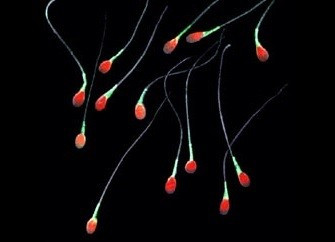Designer Sperm: Scientists Able to Alter Genes Then Induce Fertilisation

Scientists are a step closer to creating designer sperm that they can alter before inducing fertilisation.
Published in the FASEB Journal, researchers say altered genes produce new genes that are active in the embryos and that changes can be inherited for at least three generations. They believe their "new genetics" will allow people to change faulty genes.
Study author Anil Chandrashekran, from the Royal Veterinary College in North Mymms, Hertfordshire, said the new genetic material can be introduced to the sperm of mice through a viral vector.
The authors believe that if the process is successful in humans, it could lead to huge breakthroughs in genetic medicine, allowing diseases and disorders to be cured.
They also said processes such as organ regeneration could be possible in the future.
Researchers used a virus to generate transgenic animals - a foreign gene that has been deliberately inserted into the genome - on the male germ line.
Major breakthrough
They then incubated sperm with "pseudotyped lentiviral vectors" - which can be used to alter virus particles as they do not carry the genetic material needed to produce additional viral proteins. This allows scientists to specify the character of the gene.
Sperm induced with the vectors was used in IVF studies and researchers found 42% of the cases showed the transgenic gene being encoded.
Chandrashekran said: "Transgenic technology is a most important tool for researching all kinds of disease in humans and animals, and for understanding crucial problems in biology."
Gerald Weissmann, editor-in-chief of The FASEB Journal, added: "Using modified sperm to insert genetic material has the potential to be a major breakthrough not only in future research, but also in human medicine.
"It facilitates the development of transgenic animal models, and may lead to therapeutic benefits for people as well. For years we have chased effective gene therapies and have hit numerous speed bumps and dead ends. If we are able to able to alter sperm to improve the health of future generations, it would completely change our notions of preventative medicine."
© Copyright IBTimes 2025. All rights reserved.






















